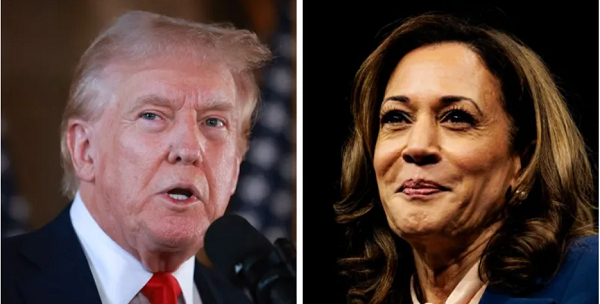Canada and Mexico face 25% tariffs on February 1 – Donald Trump

US President Donald Trump has said he will follow through with his threat to hit imports from Canada and Mexico with 25% border taxes, known as tariffs, on 1 February.
But he added that a decision about whether this would include oil from those countries had not yet been made.
Speaking to reporters in the Oval Office, Trump said the move was aimed to address the large amounts of undocumented migrants and the fentanyl that come across US borders as well as trade deficits with its neighbours.
The president also suggested that he was still planning to impose new tariffs on China, which he said earlier this month would be 10%, but did not give any details.
“With China, I’m also thinking about something because they’re sending fentanyl into our country, and because of that, they’re causing us hundreds of thousands of deaths,” Trump said.
“So China is going to end up paying a tariff also for that, and we’re in the process of doing that.”
During the election campaign, Trump threatened to hit Chinese-made products with tariffs of up to 60%, but held off on any immediate action on his first day back in the White House, instead ordering his administration to study the issue.
US goods imports from China have flattened since 2018, a statistic that economists have attributed in part to a series of escalating tariffs that Trump imposed during his first term.
Earlier this month, a top Chinese official warned against protectionism as Trump’s return to the presidency renews the threat of a trade war between the world’s two biggest economies – but did not mention the US by name.
Addressing the World Economic Forum in Davos, Switzerland, Ding Xuexiang, Vice Premier of China, said his country was looking for a “win-win” solution to trade tensions and wanted to expand its imports.
Canada and Mexico have said that they would respond to US tariffs with measures of their own, while also seeking to assure Washington that they were taking action to address concerns about their US borders.
If US imports of oil from Canada and Mexico are hit with levies it risks undermining Trump’s promise to bring down the cost of living.
Tariffs are an import tax on goods that are produced abroad.
In theory, taxing items coming into a country means people are less likely to buy them as they become more expensive.
The intention is that they buy cheaper local products instead – boosting a country’s economy.
But the cost of tariffs on imported energy could be passed on to businesses and consumers, which may increase the prices of everything from petrol to groceries.
Around 40% of the crude that runs through US oil refineries is imported, and the vast majority of it comes from Canada.
Source: bbc.com





